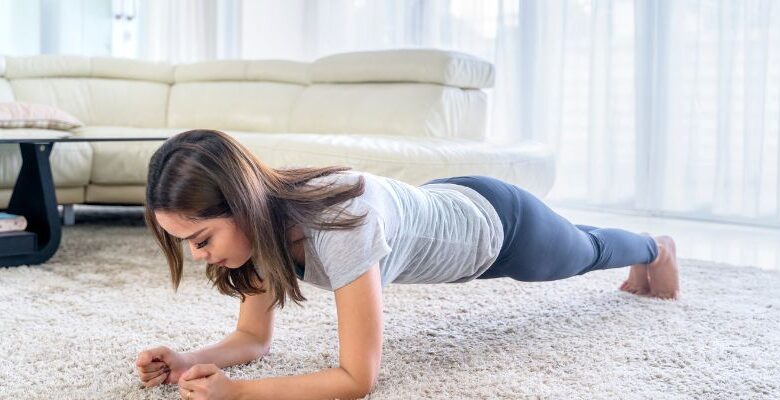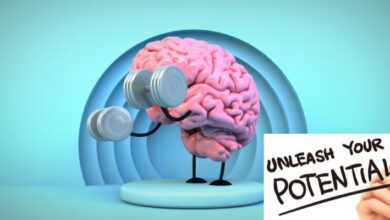Fitness Blog – 5 Ways Exercise Boosts Self-Confidence

Physical fitness and mental well-being are intricately connected, and one aspect where they intersect is self-confidence. Self-confidence plays a crucial role in our personal and professional lives, influencing our interactions, decision-making, and overall happiness. Exercise has been proven to be a powerful tool for boosting self-confidence. In this article, we will explore five ways exercise can enhance your self-confidence and provide tips on incorporating exercise into your routine.
I. Introduction
Self-confidence is the belief in one’s abilities, worth, and potential to achieve success. It empowers individuals to face challenges, take risks, and pursue their goals with determination. Building self-confidence is a lifelong journey, and exercise can be an effective catalyst in this process.
II. Exercise and self-confidence
Regular exercise offers a myriad of physical and psychological benefits, both of which contribute to increased self-confidence.
A. Physical benefits of exercise
Engaging in physical activity improves overall health and well-being. It helps maintain a healthy weight, reduces the risk of chronic diseases, and boosts energy levels. When you feel physically fit, you radiate confidence and vitality.
B. Psychological benefits of exercise
Exercise releases endorphins, also known as “feel-good” hormones, which uplift your mood and reduce stress and anxiety. It enhances cognitive function, improves sleep quality, and increases self-awareness. These psychological benefits create a positive mindset and enhance self-confidence.
III. Boosting self-confidence through exercise
Exercise provides a platform for personal growth and self-improvement. Here are five ways exercise can boost your self-confidence:
A. Setting and achieving goals
Setting fitness goals and working towards them allows you to experience a sense of accomplishment and progress. As you reach milestones and surpass your previous limitations, your self-confidence grows.
B. Improving body image
Regular exercise enhances body composition, increases muscle tone, and improves overall physical appearance. Feeling good about your body positively impacts self-image and boosts self-confidence.
C. Enhancing mental well-being
Exercise acts as a natural mood booster, alleviating symptoms of depression and anxiety. It reduces stress and promotes mental clarity, leading to increased self-assurance.
D. Building resilience
Physical challenges during exercise build mental resilience. Pushing through discomfort, overcoming obstacles, and persevering in the face of adversity translate into increased self-belief and confidence in handling life’s challenges.
E. Gaining a sense of accomplishment
Completing a workout, conquering a difficult exercise, or participating in a fitness event instills a sense of achievement. These small victories contribute to an overall sense of self-worth and confidence.
IV. Types of exercises that boost self-confidence
Various forms of exercise can contribute to boosting self-confidence. Here are some examples:
A. Strength training
Lifting weights and performing resistance exercises help develop physical strength and improve body composition. The visible progress in strength and muscle tone enhances self-confidence.
B. Cardiovascular exercises
Engaging in aerobic activities such as running, cycling, or swimming improves cardiovascular health, increases stamina, and releases endorphins, all of which contribute to an elevated sense of self-confidence.
C. Group fitness classes
Participating in group fitness classes fosters a sense of community and support. Working out alongside like-minded individuals creates a positive environment that promotes self-confidence.
D. Outdoor activities
Exercising outdoors, such as hiking, biking, or playing sports, provides a refreshing change of scenery and connects you with nature. These activities boost mood, reduce stress, and enhance self-confidence.
E. Yoga and meditation
Practicing yoga and meditation improves body awareness, promotes mindfulness, and cultivates a positive mindset. The combination of physical and mental well-being positively influences self-confidence.
V. Tips for incorporating exercise into your routine
To make exercise a sustainable habit and maximize its impact on self-confidence, consider the following tips:
A. Start small and gradually increase the intensity
Begin with manageable exercise sessions and gradually increase the duration and intensity. This approach prevents burnout and ensures a sustainable routine.
B. Find activities you enjoy
Engage in activities that align with your interests and preferences. Enjoyment increases motivation and adherence to an exercise routine.
C. Set realistic goals
Set specific, achievable goals that align with your fitness level and lifestyle. Celebrate milestones along the way to maintain motivation and boost self-confidence.
D. Make exercise a priority
Prioritize exercise by scheduling it into your daily routine. Treating it as a non-negotiable commitment ensures consistency and reinforces its importance.
E. Stay consistent and track progress
Consistency is key to reaping the benefits of exercise. Keep a record of your workouts, track progress, and celebrate the positive changes to reinforce your self-confidence.
VII. Conclusion
Exercise is a powerful tool for boosting self-confidence. Through physical and psychological benefits, exercise helps individuals set and achieve goals, improve body image, enhance mental well-being, build resilience, and gain a sense of accomplishment. By incorporating different types of exercise into your routine and following key tips, you can harness the transformative power of exercise and experience increased self-confidence in all areas of your life.



